profile badges
...
...
...
...
recent achievements

Explorer - Level 1
Earn Explorer XP to level up by completing Explorer Quests
Earn Explorer XP to level up by completing Explorer Quests

Expert Grader
Grade 400 more reviews or tips by clicking "Yes" or "No" in response to the question "Was this helpful?"
Grade 400 more reviews or tips by clicking "Yes" or "No" in response to the question "Was this helpful?"

Junior
Earn Professor XP to level up by completing Professor Quests!
Earn Professor XP to level up by completing Professor Quests!

Vanguard
Give 250 hearts (loyalty points) to a single game
Give 250 hearts (loyalty points) to a single game




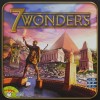
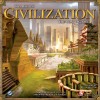
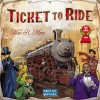



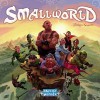

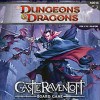
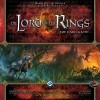
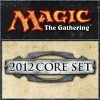


Magic: The Gathering
This review is primarily intended for those who have never played Magic the Gathering and who are wondering if it is the type of game for them. Magic is a customizable card game that has been around for about twenty years. Players duel one another with decks that consist of a variety of mana, creature, and effect cards. The different mana types represent different types of play styles. For example, green, or forest, mana decks have the strongest creatures; whereas, black mana decks rely on cards that can destroy an opponent’s creatures and drain her/his life points. There are also decks that combine different types of mana. The goal of the game is to reduce your opponent’s life points to zero before you run out of life. Since this is just a basic review to help you decide whether or not to give the game a try, I will not explain all of the details involved in playing Magic; rather, I will list some pros and cons. Personally, I love Magic, and many other people do as well; however, it is not a game for everyone. Below is a list of some pros and cons that should help you decide if it is worth trying for you. I would like to add that if you want a quick overview of the game and want to try it before you buy it, you can download Magic 2012 on your Xbox 360, PS3, or on Steam. This is cheap and will allow you to play several types of decks, and this version of the game walks you through how to play, so it is a quick way to learn the rules.
Following is a list of general facets of the game that you may want to consider:
Number of players: Magic can be played by two, three, or four players. In a two-player game, opponents duel one another. This is the most standard way to play. A three-person free-for-all is also possible as is a four-person free-for-all. Another fun way to play is in teams of two called two-headed giant where partners share life points and can attack either of their two opponents. It really is not feasible to play with more than four players, and Magic is not a game that one can play alone.
Difficulty: Magic is not terribly difficult to understand. I do not find it any more difficult than most other card games like it. At first, it can be a bit overwhelming as there are many different abilities that cards can have that need to be learned; however, the rules are clear in most cases, and it doesn’t take a genius to figure out how to play. My nine-year-old son and some of his classmates have no trouble understanding how to play. With that being said, Magic is not a game that very young children can probably understand, but I would say that it is reasonable for most children ten and older to understand. Of course some parents may not be comfortable letting their children play it, as some of the themes might be unappealing to them. That would be up to parents to research and decide on their own. Additionally, it will take a fair amount of research if you get into the deck-building aspect of the game to learn what card combinations work best.
Price: Magic can end up being very expensive. I have seen players wear shirts that state, “My deck cost more than your car.” In some cases, that may not be much of an exaggeration. Of course players could each just purchase a pre-made deck and play against each other with those cards and nothing else. If this were the case, then the game would not be very expensive; however, it is likely that you will want several different decks and that you will want to build your own decks. Rare and highly sought after cards can be expensive with individual cards topping the twenty dollar mark at times. Not all cards are that expensive, and a fairly good deck can be built without spending a fortune, but to build your own ultimate super deck, you may have to fork out in excess of one hundred dollars. In addition to the cards, you will probably want to buy sleeves, some kind of storage case for the cards, and you might want to spend extra on play mats, counters, and other optional items. Really the amount of money you spend on this game is up to how obsessed with it you become. It’s just something to be aware of before you take the plunge. You might end up spending a lot of money on it, and if you want to be truly competitive with the public, then plan on spending money on the game fairly regularly.
Speed of play: Magic, when compared to most board games, plays quickly. I would say that the average time that a duel takes is about twenty minutes. Playing with more than two players will probably extend this time a bit, but Magic is still a fast game. This makes it an ideal starter game to an evening of gaming or makes it practical to play several games of Magic in a single get together. There is very little set-up time as well. The game is quite portable and can be played just about anywhere.
Popularity: Magic is very popular making it readily available and making it easy to find people to play with. Even if you don’t have any friends willing to play it, there are always games and tournaments being played at local game shops.
Game is always evolving: Since Magic is so popular, new expansions are constantly being released. The rules are frequently changed and expanded as well. These facts have turned off some players who find it overwhelming to keep track of all the changes, and don’t want to keep buying cards. It could be a good thing too, if you become interested enough to follow it. There is a steady stream of new content and a nearly unlimited amount of variations possible.
Theme: Magic has a broad fantasy theme. This will interest some and bore others. If you only like Euro or war games, then Magic may not be for you.
Luck factor: Ideally Magic encourages strategic decision making, but with the drawing of cards, there are always occasions when you will end up with a bad sequence of cards – like too much or not enough mana – where your skill is undermined by your luck. So, there is some luck involved, but it is mainly in what cards you get, and strategy will win most duels.
That pretty much sums up the pros and cons of Magic at a basic level. I love the game and have played it regularly for years, and I gave it an 8/10. However, I understand why some people do not like it. I hope this review helps you decide where you will fit. If you’re still not sure, then my best advice is to download the digital version mentioned earlier.